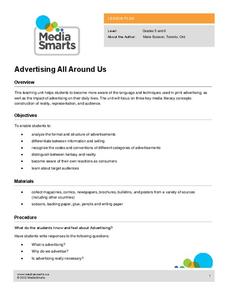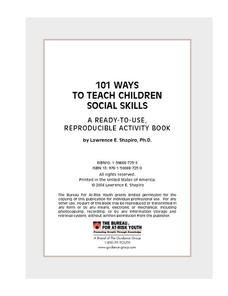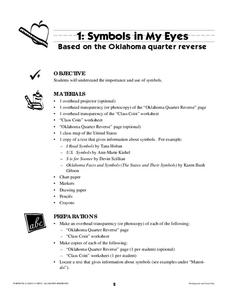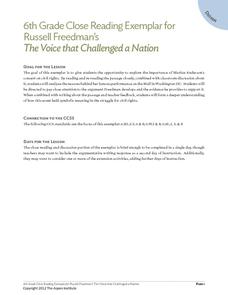Generation Rx
Medication Safety Patrol: Activity Stations
Four stations challenge scholars to show what they know about the safety of taking and storing medications. Small groups rotate to read and answer questions regarding prescriptions drugs, examine prescription labels, identify appropriate...
National Park Service
Maltese Cross Cabin
The Maltese Cross Cabin, a frontier residence of Theodore Roosevelt, is a time capsule that commemorates Roosevelt's time in the Dakota territory. An explanatory video and response guide takes students on a virtual tour of the wooden...
National Library of Medicine
Your Environment, Your Health: The Great Debate—Bottled Water vs. Tap Water in Our School
Should bottled water be sold in schools, or should they only provide tap water? The summative unit in the six-part series encourages scholars debating this topic. The lessons teach how to build an argument, how to gain background...
Towson University
Mystery Tubes
How do scientists know they're right? Truth be told, they don't always know. Explore the scientific process using mystery tubes in an insightful activity. Young scientists discover how to approach and solve problems in science, how ideas...
Channel Islands Film
Step Into the Shoes
Small groups create skits that illustrate the different perspectives of those involved in the transitioning of Santa Rose island from private ownership to National Park.
Channel Islands Film
Telling Your Own Story
After watching and discussing a video on the Voyage of Cabrillo, individuals craft their own origin story and design and build an artifact they feel best represents their history.
Louisiana Department of Education
Hatchet
Accompany a novel study of Hatchet by Gary Paulson with a unit consisting of 16 lessons focused on physical and emotional survival. Reading the story along with a variety of informational texts, scholars compare and contrast reading...
Curated OER
Savvy Surfers: Website Evaluation and Media Literacy
Sixth graders strengthen their understanding of what a high quality website is composed of. Learners evaluate three websites for accuracy, credibility, and reliability by completing a chart.
Safe Drinking Water Foundation
I Want to Be an Engineer
Environmentalists turn into engineers! Your class explores the perspectives of an engineer and water keeper, including the necessary steps that are taken in order to build a water treatment facility.
Media Smarts
Advertising All Around Us
Here is a set of advertising lessons, explore language, techniques, representation, and target audiences. Discuss the impact ads have on our daily lives. What do we see and how do they make us feel? Observe ads from around the...
Novelinks
The True Confessions of Charlotte Doyle: Problematic Situations
When is it okay to go against authority and what can happen if you do? This is the leading question in this activity to accompany your classroom reading of The True Confessions of Charlotte Doyle by Avi. After reading...
Guidance Group
101 Ways to Teach Children Social Skills
Increasing pressure to improve student achievement has made it easy to overlook the social skills they also need to develop. With this collection of worksheets and activities, you'll be able to improve children's...
Beth Kupper-Herr
Taking Notes
When you ask your students to take notes during class, do they really know what you mean? Are they taking the right kind of notes and using their time effectively? Make sure they are by offering this handout, a comprehensive guide...
US Mint
Symbols in My Eyes
Explore the hidden meanings behind the images on US currency with this elementary school instructional activity on symbolism. Starting with a class discussion about symbols, children go on to brainstorm different objects that...
Michigan State University
Gases Matter
Young scientists learn that seeing isn't necessarily believing when it comes to the states of matter. After performing a fun class demonstration that models the difference between solids, liquids, and gases, children complete a series of...
May Media Group
Treatment Plants
Young scientists explore nature's water treatment plants in this simple science demonstration. By placing a stalk of celery in a cup of water mixed with food coloring, children are able to observe how plants absorb nutrients and...
Student Handouts
Debate Notes Worksheet
Whether your young orators are preparing for an in-class debate, or you are presenting a video of a debate to your class, this is an easy-to-use template that will help them organize the major arguments of each debate position, as well...
Aspen Institute
The Voice That Challenged a Nation
Included here are step-by-step instructions for conducting a close reading of The Voice That Challenged a Nation by Russell Freedman. After an individual and class reading, class members read carefully through the text excerpt,...
Curated OER
Search Warranted?
Young readers work on evaluating claims in a piece of informational text with the article "In New York, It's Open Bag or Find Exits" from the New York Times. They analyze current search procedures implemented to fight terrorism...
Other
Center for Nonverbal Studies
Delve into the world of nonverbal cues. Learn about Adam's-Apple jump and the zygomatic smile.
Other
Your Telephone Speaking Voice
This is an article that covers many different telephone skills. It covers the proper answering techniques and the correct way to leave a message.
Other
The Critical Thinking Community: Tactical and Structural Recommendations
16 brilliant suggestions for creating critical thought in the classroom.
Other
Critical Thinking Community: Remodeling Lessons Grades 6 9
Learn to re-model your lesson plans to include room for critical thought and higher levels of learning. Re-modeled lessons cite specific critical thinking strategies. Wonderful examples include "Human Migration," "Integrated Grammar,"...
Polk Brothers Foundation Center for Urban Education at DePaul University
De Paul University: Center for Urban Education: Think Clearly: Analyze Support a Position[pdf]
This Center for Urban Education resource provides a downloadable worksheet. Students will read a nonfiction article and then write about scaffolded prompts that will help them determine the strength of evidence presented in the argument.

























![De Paul University: Center for Urban Education: Think Clearly: Analyze Support a Position[pdf] Graphic De Paul University: Center for Urban Education: Think Clearly: Analyze Support a Position[pdf] Graphic](https://d15y2dacu3jp90.cloudfront.net/images/attachment_defaults/resource/large/FPO-knovation.png)